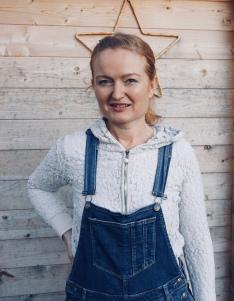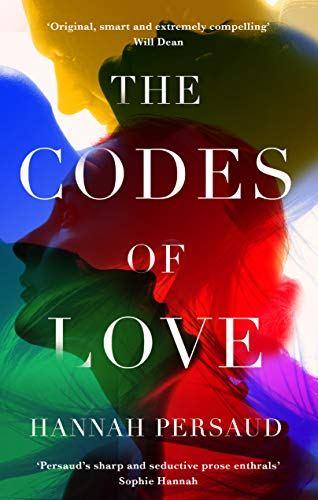 The Spring Sofa Spotlight guest programme got off to a great start last week with Eleni Kyriacou’s atmospheric Writers on Location on 1950s Soho – thanks to everyone continuing to read and appreciate what we are working together to bring you, despite everything going on ‘out there’. We’re all currently facing unbelievably stressful times but I want the blog to be a place where you can take your mind off all that (the same is true of the featured books, of course) – we’re going to need those moments.
The Spring Sofa Spotlight guest programme got off to a great start last week with Eleni Kyriacou’s atmospheric Writers on Location on 1950s Soho – thanks to everyone continuing to read and appreciate what we are working together to bring you, despite everything going on ‘out there’. We’re all currently facing unbelievably stressful times but I want the blog to be a place where you can take your mind off all that (the same is true of the featured books, of course) – we’re going to need those moments.
Today I’m delighted to welcome Hannah Persaud to discuss writing an unconventional marriage in her debut novel The Codes of Love. When the independent Muswell Press sent me this book it rocketed to the top of my TBR list because I’m always intrigued to see what other writers come up with in thematic territory we share, namely relationships, sexuality and specifically the question of monogamy (as nobody who’s read my debut will be at all surprised to hear). Of course, high expectations don’t always work out well but Hannah’s novel met them and then some. That was before I’d even seen the gorgeous cover… my review follows her piece.
Relationships are at the heart of everything that I write, whether it’s a novel, a short story, a piece of flash fiction or a poem. I find them fascinating – be it the interplay between siblings or between parents and a child, in friendships or between lovers – there is no such thing as “static” in these dynamics because as humans we are constantly evolving and changing and adapting, adjusting our expectations and our behavior. Even inertia does not mean that a relationship is not moving somewhere, even if that somewhere is towards the edge of a cliff.
The Codes of Love, my debut novel which launched on 5 March, has been described as an unconventional and contemporary take on a modern marriage. In the novel, two of the three main characters are Ryan and Emily. On the surface they are a happily married couple who have everything – plenty of money, light-hearted banter, a sex life, and two teenage sons. But from the outset of the novel their status quo is threatened by the appearance of Ada, a free-spirited force of energy who inserts herself into their worlds with hurricane force and makes them confront their desires.
Reactions to Codes have been interesting to follow. I never set out to create ‘likeable’ characters – for me the story wouldn’t work if I had tried to make excuses for their decisions. Nor did I want to tell the reader what to believe or feel. Rather I lobbed the characters their own motivations and belief systems and let them struggle with the consequences. That said, there are elements of my characters’ personalities that I do admire – Emily’s willingness to be different and her insistence on truth, Ada’s freedom and Ryan’s loyalty, misplaced as it is. The subjectivity of interpretation in readers is fascinating.
From the outset of their marriage, Emily insisted on an open arrangement – she and Ryan are free to sleep with other people as long as they follow Emily’s rules, which she designed to ‘protect’ them. Humans, she argues, are capable of loving one person completely whilst having sex with others – monogamy is an inherently unnatural thing that is the root cause of most marriage failures, she justifies. But her husband Ryan never really bought into her unusual proposition, agreeing to it in the belief that over time she’d change her mind. Not everyone is capable of sex without emotion or of separating out desire from love, as they all, eventually, find out.
In The Codes of Love I wanted to explore a different kind of marriage, one that swam against the current and subverted the norm. Open marriages do exist and many people in them claim that they work. If pushing the boundaries of what we’ve been taught brings happiness, have they achieved it? My guess is that some have and some haven’t. Monogamous marriages are more socially acceptable, but are their participants happier than the characters in my book? Many probably are, but many probably aren’t. There is no such thing as a blueprint for a happy relationship, no one size that fits all. This is why I find writing about relationships such a treasure trove of material.
In the novel the point of view shifts between Ryan and Emily, because just as there is no one solution for the perfect relationship, there is also no finite truth – everything that we believe in is subjective, skewered by our personal perception. There is always more than one side to a story, always more than one interpretation of a conversation.
I wanted to write a novel that breathes in the gray areas, that reflects the complicated contradictions and complexities that hover beneath our surfaces and that firmly acknowledges the role that sex plays in the dynamic between us and other humans. To this end, I chose to write graphic, no frills sex scenes with no sugar coating. In the novel, both Emily and Ada use their sexual power to control various situations and make no apologies for doing so. It felt untruthful to write a novel about an affair(s) while concealing the motivating factors that tip fantasy into reality.
After reading The Codes of Love, a writer friend emailed me and told me that he didn’t believe that my book was ultimately at its heart a novel about marriage or love, but a book about belonging. Both in a personal sense, as in with whom, and more importantly, in a structural, physical sense. I couldn’t agree with him more. The settings throughout the book – Dulwich, the Dorset Coast, and most importantly, the cottage in remote North Wales -these are the pivots on which decisions are made and on which lives crumble. No matter how free they want to be, ultimately none of the characters are a match for the wild, tumbling and untameable landscape that they attempt to inhabit, their desire to contain and control rendering the freedom that they yearn for an impossibility.
Thank you for reading this article, and to Isabel for hosting me on The Literary Sofa. As the world around us morphs into an unrecognisable landscape, the support and spirit of readers and writers becomes ever more important. Take care and stay safe.
And thank you, Hannah, for this fascinating and articulate piece which she produced in the space of one afternoon earlier this week. Very impressed by your power of concentration!

The distinguishing quality of this novel lies in the author’s willingness to question things society generally doesn’t, and which to a degree are considered unsayable. It’s a prime example of the risks writers need to take in order to give the reader something exciting and different on a familiar theme; many novels portray the trials of marriage and monogamy – this bold, sharp debut rewrites the rules. This will be a stimulating and relatable read for anyone who’s ever struggled to keep their desires and personal relationships inside the lines of social convention and ‘acceptability’, or simply doesn’t want to – that’s a lot of people…
The Codes of Love is my kind of book in all respects: taut in plot and style and highly compelling, I always looked forward to getting back to it. It’s the rare work of fiction that addresses several of my longstanding gripes: about the representation of older women, women of any age being shown to have autonomous sexual agency; and presumptions of straightness. I liked the directness of the sex scenes (and for what it’s worth, this book has the hottest one I’ve read in quite a while). I didn’t particularly empathise with the characters, apart from Emily in relation to effectively raising her sons alone, but absence of ‘likeability’ is not an issue – in fact, readers may relish their various reactions to the characters, their staggering wealth and the lifestyle and attitudes that go with it. There’s a degree of glamorous escapism here but the result is far from trashy; the author succeeds in conveying the couple’s incompatibility and the ’empty on the inside’ of those who are unhappy despite incredible privilege, and the simple human nature of wanting more (quite a bit more, in Ryan and Emily’s case) than you have, however much you have already. I certainly don’t need nine more months to know this will be one of my Books of 2020.

